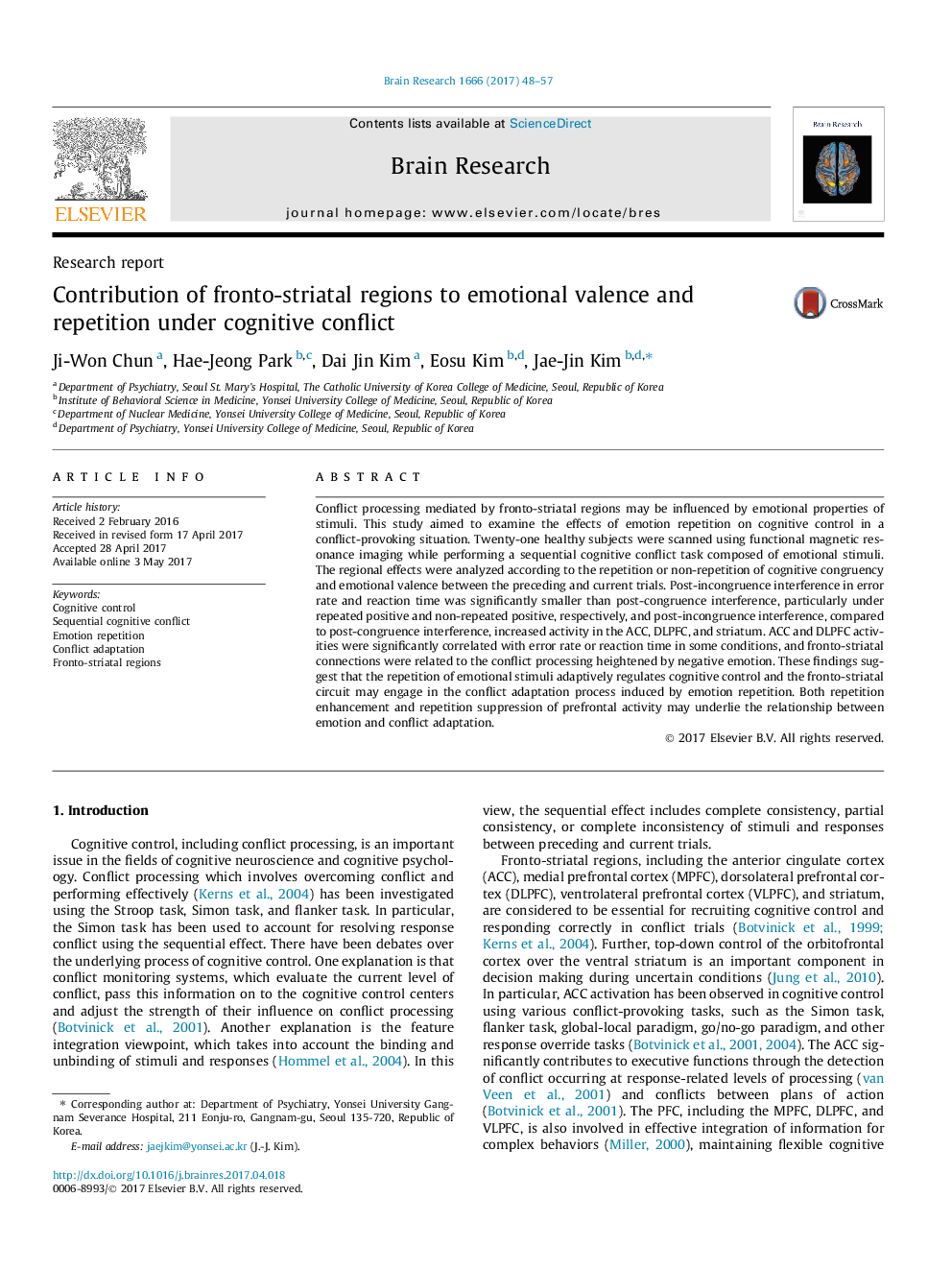ترجمه فارسی عنوان مقاله
مشارکت مناطق منطقه ی پیشرو در تنگناهای عاطفی و تکرار در تعارض شناختی
عنوان انگلیسی
Contribution of fronto-striatal regions to emotional valence and repetition under cognitive conflict
| کد مقاله | سال انتشار | تعداد صفحات مقاله انگلیسی |
|---|---|---|
| 128109 | 2017 | 10 صفحه PDF |
منبع

Publisher : Elsevier - Science Direct (الزویر - ساینس دایرکت)
Journal : Brain Research, Volume 1666, 1 July 2017, Pages 48-57
ترجمه کلمات کلیدی
کنترل شناختی، تعارض شناختی متوالی، تکرار احساسی، سازگاری دفاعی، مناطق روستایی،
کلمات کلیدی انگلیسی
Cognitive control; Sequential cognitive conflict; Emotion repetition; Conflict adaptation; Fronto-striatal regions;

